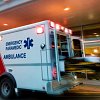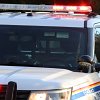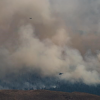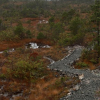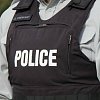For the first time since the mid-1990’s British Columbia is revamping the province’s K-12 curriculum, but unlike previous revisions this time the focus is not on the learning material, but how the material is learned.
The result will be that today’s and tomorrow's students in B.C. classrooms will likely not all be reading the same books and answering questions to the same tests.

“B.C.’s new curriculum emphasizes hands-on learning, collaboration, critical thinking, social responsibility and communication skills,” said the Ministry of Education in a statement.
“Students are also asked to engage deeply with key concepts. This provides teachers with flexibility while also retaining the high standards expected in foundational courses like math, science and English.”
When asked what difference she sees in her grade four daughter's education compared to her own, Kelowna mother Carly McKay says it’s the way students are taught to engage with the subjects themselves and not just the subject matter.
“It's not so much a teacher saying ‘the earth goes round the sun, here's how we know,’ it's more about understanding how we know that, who determined the fact and what roadblocks did they encounter from the public when they reached this conclusion."
McKay also noted the focus on collaboration and communication in classrooms has grown since the implementation of the new curriculum.

“When I was in Elementary School we sat at our desks and copied information from the board or took notes from a book and had to write basic reports about the subject,” said McKay.
“It limited us to what was presented and didn't open students up to new ideas or thoughts about those subjects.”
The new curriculum puts personal and social competency on the same level as communication and critical thinking when it comes to what children should be learning in schools.
At the forefront of the shift in education ideologies are B.C.’s educators, and those in training like the students in UBCO’s education program.

“One of the things that is integral to our new teacher education program is that we want teachers to think about how content knowledge is hugely important, but if it’s only taught in rote ways, we're going to manifest a lot of superficial learning,” said Dr. Margaret Macintyre Latta, Professor and Director of Graduate Programs and Education at UBCO.
“We want knowledge and curriculum in the classroom to be thought of as practices that are enacted in the classroom, rather than things that are delivered to students by teachers.”
The new curriculum is already in place and mandatory for kindergarten to grade 9 students, and will become mandatory in B.C. classrooms from K-12 for September 2018.
“It's not that lecturing is all bad, but we want students to also access deeper conceptual understanding and learn to build new knowledge and to think collaboratively with others,” explained Dr. Macintyre Latta.

“There is less certainty, it doesn't mean that teaching is not intentional, it’s highly intentional, but it involves educators and a willingness to be an inquirer alongside their students. By that, I mean that there is room in classrooms to question, to be wrong, to experiment.”
According to the Ministry of Education, B.C.’s new curriculum is in-line with international trends that support the broad changes.
The new curriculum could even see changes to the traditional report card system and graduation requirements.
For students in grades K-9, B.C. school districts have two options to consider for student reports:
- Interim Student Reporting Guidelines allows districts to report to parents using more responsive, flexible processes. Option A is intended for use by districts that have developed or are in the process of developing local policy and procedures for reporting student progress in Grades K–9 and have engaged in consultation with parents.
- Student Reporting Policy provides a standard process for reporting student progress. It maintains the requirement to provide a minimum of three scheduled formal reports during the school year and two other forms of communication to parents.
It will be up to School Districts to determine which of the above two options for reporting student progress best aligns with local needs and readiness.
What do you think of the new curricular direction for B.C.'s classrooms? Let us know in the comments below!








